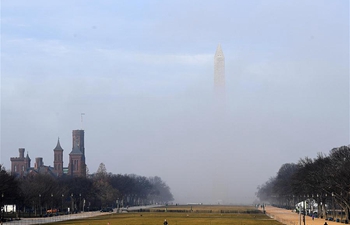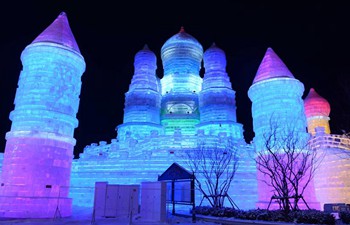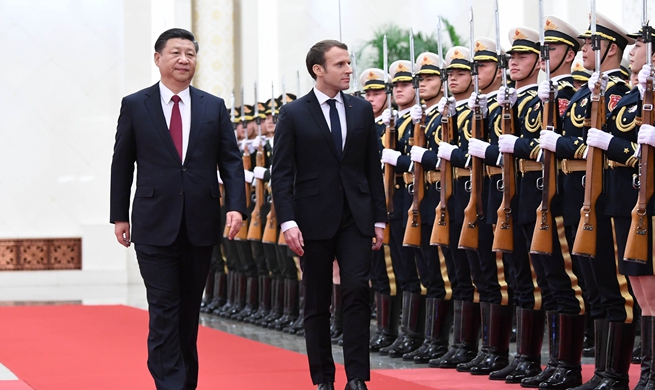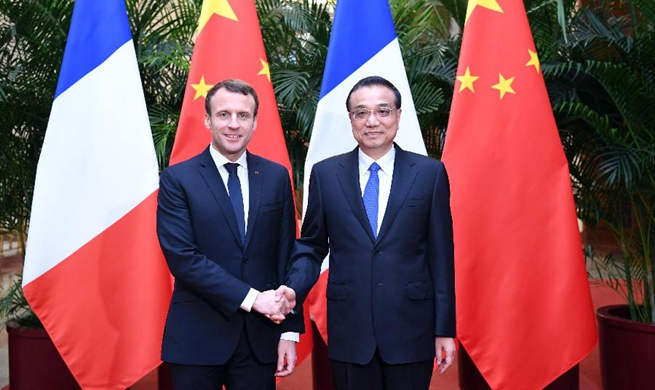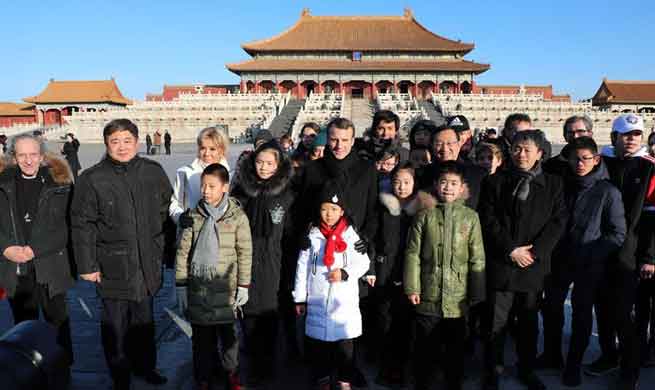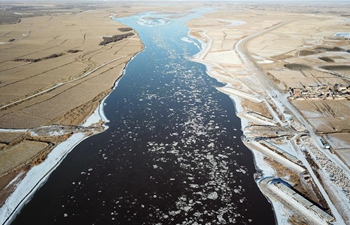BEIJING, Jan. 10 (Xinhua) -- Beijing saw major air pollutants plummet in the last quarter of 2017 thanks to a string of measures to improve air quality, the environmental protection ministry said Wednesday.
The density of PM2.5 in Beijing dropped by 53.8 percent in the October-December period year on year while that for December plummeted by nearly 70 percent, according to a statement on the ministry's website.
An air pollution plan issued by the State Council in September 2013 ordered Beijing to reduce its PM2.5 density from 90 micrograms per cubic meter in 2013 to around 60 micrograms per cubic meter by the end of 2017.
The average density of PM2.5 in Beijing was 58 micrograms per cubic meter last year thanks to effective pollution controls.
The statement showed that Beijing, Tianjin and 26 cities in nearby provinces saw an average drop in PM2.5 density of 34.3 percent in Q4 last year.
Shijiazhuang, capital city of Hebei Province, achieved the biggest progress by reducing PM2.5 density by 54.8 percent.
Provinces around Beijing are home to China's major steel-makers, coal mines, aluminum producers and chemical plants. They are also at the front of the country's fight against air pollution.
Local governments have slashed steel capacity, shut down illegal polluting factories, gradually ditched coal-burning heaters and curbed car emissions to reduce pollution.
The MEP forecast air pollution in Beijing and nearby areas could deteriorate from late January to early February, citing static weather patterns, which make it difficult for airborne pollutants to disperse.
It demanded local authorities take stronger measures to improve air quality.
Tackling pollution has been listed as one of "the three tough battles" that China aims to win in the coming three years, according to the Central Economic Work Conference, an annual tone-setting economic meeting.





